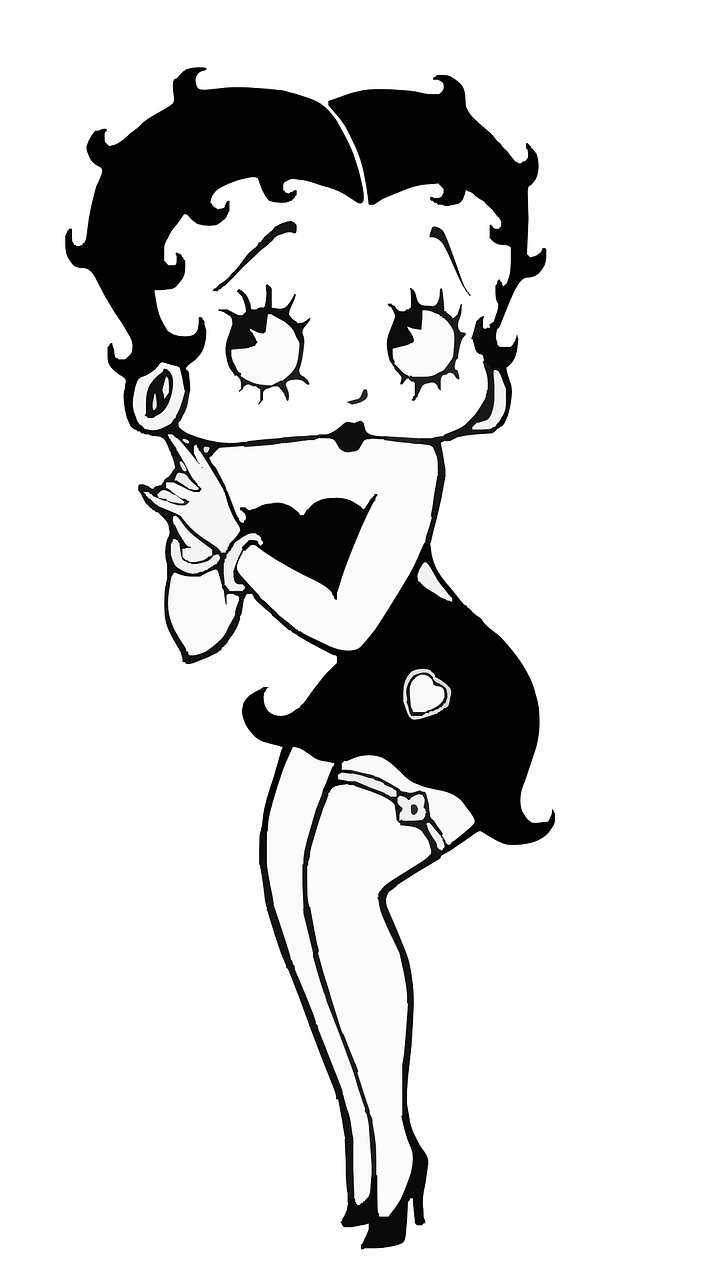Top 5 Bad Ass Betty's
- Betty Blush

- Nov 3, 2023
- 3 min read
The name Betty often conjures up an image of a lovely, wholesome type of lady. But we all know that beneath the surface of every prim is a total bad ass waiting to break out as seen in this list of fictional characters named Betty. Here are our top 5 Bad Ass Betty's as chosen by us.
Number 5: Betty Suarez (America Ferrera) - Ugly Betty

Photo: ABC
Betty Suarez is known for her quirky personality, unconventional fashion sense, and her determination to succeed in the fashion industry. She is also a loyal friend and an advocate for social justice issues.
Betty's character subverts traditional beauty standards. She is often judged and underestimated by others because of her unconventional appearance, but she proves time and time again that her intelligence, kindness, and work ethic are what truly matter.
Number 4: Betty Boop (Animated Cartoon Character)

First introduced in the 1930s as a caricature of a flapper, Betty Boop represented the emerging image of the "modern" woman who challenged traditional gender norms. Her short skirts, bobbed hair and carefree attitude were seen as revolutionary at the time, as they defied the conservative values of the era.
Betty Boop was also a symbol of sexual liberation, which was an aspect of feminism that was just beginning to emerge during her time. She was unapologetic about her femininity and often used her charm and sexuality to assert her power and independence.
Finally, Betty Boop was one of the first female cartoon characters to have her own show and serve as the main protagonist. This was a significant accomplishment during a time when most female characters were relegated to supporting roles or portrayed as passive objects of desire.
Number 3: Betty Rizzo (Stockard Channing) - Grease

Photo: Paramount Pictures
Betty (known as her surname 'Rizzo') is a character from the classic movie musical Grease who challenges traditional gender roles. She is confident, outspoken and unapologetic about her sexuality. She doesn't conform to societal expectations of what a "good girl" should be and instead asserts her independence and desires.
Rizzo's character highlights the double standards that women face regarding sexuality. She is often judged and ostracized for her promiscuity, while her male counterparts are praised for their sexual conquests. Her character brings attention to the unfair and harmful societal expectations placed on women regarding their sexual behaviour.
The evolving relationship between Rizzo and Sandy highlights the importance of solidarity and support for fellow women. Despite their initial conflict, the two women come together to support each other through their struggles with relationships and societal expectations. This demonstrates the importance of women uplifting and supporting one another, rather than tearing each other down.
Number 2: Betty Parker (Joan Allen) - Pleasantville

Photo: New Line Cinema
At the beginning of the movie Pleasantville, this Betty is shown as a typical 1950s housewife who is obsessed with keeping her home and family perfect. She is depicted as overly critical, emotionally distant and unhappy with her life. But as the story progresses and she starts to experience changes in her life and surroundings,
Betty begins to question the rigid gender roles and expectations placed upon
her. She starts to assert herself, stand up for herself and take control of her life. And who could forget that bath scene, where she discovers *ahem* herself, igniting a fire in their front yard tree!
Number 1: Betty Draper (January Jones) - Mad Men

Photo: AMC
Drum roll please for the number 1 bad ass Betty... None other than the long-suffering wife on Don... Betty Draper.
First and foremost, Betty initially conforms to the role of the perfect housewife. But as the series progresses, she begins to assert her independence and pursue her own interests, such as going back to school and pursuing a career in psychology. Her journey highlights the struggles that many women faced in the 1960s (and arguably to this day), and that is trying to balance their roles as wives, mothers and individuals with their desires for self-fulfillment.
Betty is constantly judged for her appearance and behaviour, and her mental health struggles are often dismissed or trivialised by the men in her life. Her character demonstrates the limitations placed on women's agency and autonomy during this time, and her attempts to break free from these constraints are a testament to her strength and resilience.
So there you have it... the top 5 Bad Ass Betty's according to Betty Blush. Can you think of any others? Let us know if the comments!











Comments